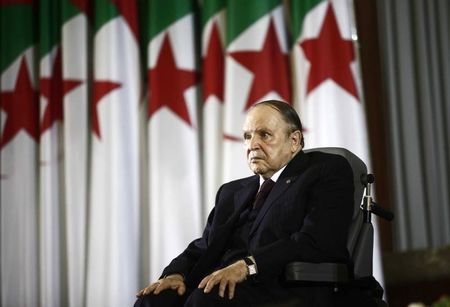LYON France (Reuters) - Algerian President Abdelaziz Bouteflika, who suffered a stroke last year, was hospitalised in the Alpine city of Grenoble in France on Thursday, French police and government sources said.
"He was taken into care at Grenoble mutualist clinic yesterday," the source told Reuters on Friday, although he did not have details on why Bouteflika had been hospitalised.
A spokesman for the Algerian government was not immediately available for an official comment. But Amar Saadani, head of Bouteflika's ruling FLN party, when asked whether the president was in France for treatment, told Reuters: "It is not true."
Algeria's Echorouk TV, seen as close to the government, cited a presidential source as saying Bouteflika was at home and his health normal.
Two French government sources said he had arrived on Thursday. One said the Algerian leader appeared to be in France for a routine check-up.
A veteran of Algeria's war of independence against France which ended with independence in 1962, Bouteflika, 77, suffered a stroke in early 2013, forcing him to be rushed to a French hospital. He has since returned to France for several check-ups.
Under Bouteflika, the OPEC producer has become a partner in Washington's campaign against al Qaeda-linked militants in the Maghreb and a supplier of about a fifth of Europe's gas imports.
But Bouteflika's frail health has left questions about what happens next, who replaces him if he cannot govern for his entire term and how that might affect political and economic reforms and oil investment in the vast North African country.
French media showed pictures and video footage of the area around the clinic being cordoned off by police.
Local newspaper Le Dauphine, citing different unidentified sources, said Bouteflika had been admitted to the cardiology and cardio-vascular diseases division of the clinic.
A hospital spokeswoman declined to comment.
Bouteflika met French Foreign Minister Laurent Fabius in Algiers earlier this week to discuss bilateral ties.

"He has a small problem with his speech, but intellectually he is working very well," Fabius said on Monday.
(Reporting By Catherine Lagrange in Lyon, Sophie Louet and John Irish in Paris and Lamine Chikhi in Algiers; writing by John Irish; editing by Gareth Jones)
